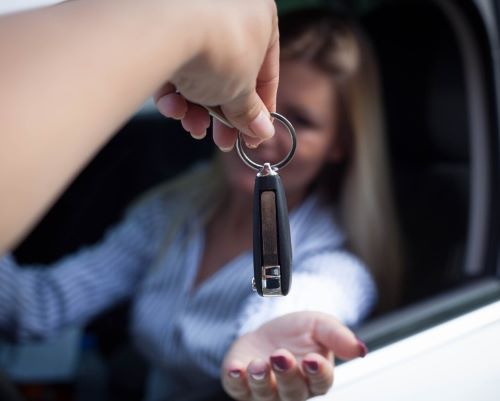Buying a car is often the second biggest purchase a person can make, second only to purchasing a home. Yet, the process can often be rushed and the buyer at a disadvantage. With the holidays around the corner, and dealerships flooding the internet and airwaves with end-of-the-year sales ads, we asked caseworker Tonya Cooper for tips and tricks for buying a car.
Ask yourself some questions. Why are you buying this car? Is it a want or a need? The point is to really examine why you are making the purchase and look at how it fits into your budget. And be sure to look at how you will be using the vehicle. Is it just for one person to get back and forth to work or is it a family vehicle? Looking at what you need will help you narrow down your options.
Research, Research, Research: Knowledge is power, Tonya said. “You don’t ever want to walk into the dealership and give the dealer all of the power. You don’t want to walk in and say sell me a car. Ideally you know exactly what you want and exactly what you want to pay for it.”
She recommends the sites Edmunds.com and Truecar.com as ways to do most of your research. You need to know your budget, the market standard for the vehicles you have chosen, and your financing options. Let’s tackle those one by one.
Know your budget. To help with budgeting, financial counselors recommend that cars take up no more than 20 percent of your gross income, that is including fuel and insurance. Understanding gas prices in your area and knowing the gas mileage capability (like 21 miles per gallon) of your car is important for your budgeting purposes. Of course, this also depends on the rest of the household expenses. To help with budgeting, use the Edmunds.com affordability calculator. Overall, Edmunds.com has several calculators that can help you decide, including a “gas guzzler trade-in” calculator.
Learn market standards. If you know what the market standard is for the vehicle, then it is easier to know if the dealership is selling at a good price. Edmunds has true market standard listings. This is what the vehicle retails for, on average, at the dealer.
Financing options. Always secure financing before going to the dealership. The best places to go are your bank and possibly a credit union. They are the ones who will give the best interest rate. By having financing secure, this ensures that you will not go over your budgeted amount. It also helps you negotiate the total price of the car because you do not need the dealer’s financing. Keep in mind, just because financing is secured does not mean it has to be used.
Test Drive. So, you did your research, you have your financing, and now you are ready to go pick out your vehicle. Be sure to test drive. And then walk away, Tonya said. “The biggest thing I can stress here is don’t buy on the first trip to the dealer. Go home and sleep on it.”
Bring a friend or use a car-buying service. You know the car you want and now it’s time to buy. If negotiating makes you uncomfortable, bring a friend or trusted loved one to the dealership. Bounce ideas off them and ask them to help you stick to your financing and plans. Or, use a car-buying service, which takes your information and sends that to dealers who will then contact you. The prices are already lower so when you get the retail price, no need for haggling.
Beware filler! Extended warranties; windshield, dent, and tire protection, are all what Tonya calls “fillers” that are just another way for the dealer to make a profit. And if you do decide to sign on the dotted line always read the fine print first.
A tip on trade-ins. Always negotiate the trade-in value separately. A used car’s worth is easy to find by using Kelly Blue Book, Edmunds and Truecar.com. If the dealer’s offer is too low, try to sell privately, or check in with a car reseller like CarMax. Most states have information online at the department of motor vehicles sites. Ideally, the money made form a private sale will go straight to the down payment of your next purchase.
Even with the best laid plans, emergencies can happen, and help is needed. As a caseworker for Operation Homefront’s Critical Financial Assistance program, Tonya has worked with service members and veterans who have needed help paying for bills, such as car payments.

